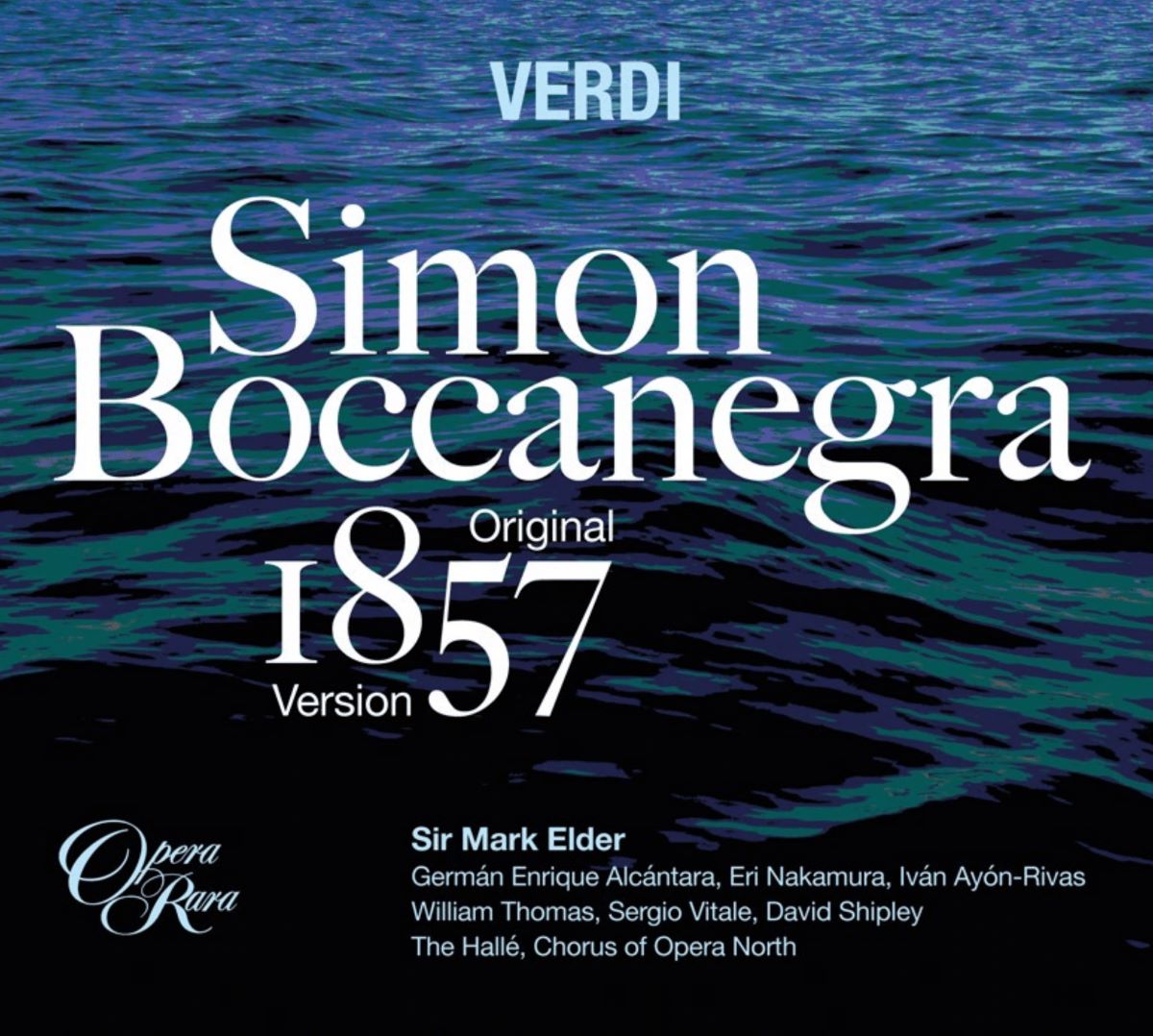Last year, just after this recording was made, I was fortunate enough to attend (and review on this site) a concert performances of this work in Manchester’s Bridgwater Hall. I am glad to say that the recording captures all the qualities of that exciting and revelatory evening. From the bold, brusque chords of the opening Prelude you know you are back with the urgency and concise briskness of the live performance.
Indeed, that very directness and economical precision of delivery flags up the unique qualities of this first 1857 version, so different from the revised version of 1881, which is usually performed. Shorn of the lengthy Council Chamber scene with its post-unification reflections on Italian identity and with sparer, leaner orchestration, this is an independent and fully valid take on the opera that presents several qualities lacking in the original. It fully makes the case not only for the new scholarly edition, but for us to hear this version more frequently on stage. Opera Rara therefore deserve great credit for inviting Roger Parker to go back to the newly available autograph score to give us greater insight into Verdi’s musical intentions. The result is as compelling and assured an opera as any Verdi wrote in this middle phase of his development; and the listener can rest assured that the recording does full justice to it.
A short notice can only flag up a few highlights, which is hardly fair when the whole CD makes for such persuasive listening. One of the major strengths of the recording is in having the young, fresh voice of William Thomas in the role of Fiesco, Boccanegra’s great rival. This means that their great scenes of confrontation in the Prologue and reconciliation in the final act have a bracketing power over the whole that give the recording overall dramatic shape.
There is only one major female role, Amelia, the Doge’s lost daughter. Eri Nakamura does a lot more with this role than is usual, and, in particular, her exquisite account of her long aria in Act One establishes a character with independent personality and drive. There is a purity of tone in her top notes and careful grading of dynamics that makes this scene on the harbour especially memorable, all assisted by Mark Elder’s painterly shaping of the lapping orchestral waves. As her love interest, Gabriele Adorno, Ivan Ayon-Rivas really comes into his own in Act 2, with a full-throated account of ‘Sento avampar all’anima’ and a pacy, incisive lead in the reconciliation scene with Boccanegra that follows. This was a more rounded interpretation than I recall from the live performance.
In title role, German Enrique Alcantara delivers a subtle, tonally varied interpretation. Boccanegra in this version has few long arias but is participating on stage in many scenes. Whether imperious, beseeching or – in the final act – gradually succcumbing to poison, he is dramatically and emotionally convincing. The final scene is genuinely affecting even with no stage visuals to bring it to life: the vocal fade-out and surrounding orchestral effects are enough to allow the imagination to complete the picture. There are no weaknesses in the various minor roles, and the chorus are as restless and rambunctious as the citizens of Genoa were supposed to be.
There is an impressive vividness and depth to the recording that lends real credibility to the many crowd scenes set on the streets of Genoa, while the bloom and resonance of individual voices is also well captured. This recording could not be bettered in any of its facets.
Composer: Giuseppe Verdi
Libretto: Francesco Piave
Halle Orchestra and Chorus of Opera North
Cast: German Enrique Alcantara, Ivan Ayon-Rivas, Eri Nakamura, David Shipley, William Thomas, Sergio Vitale

